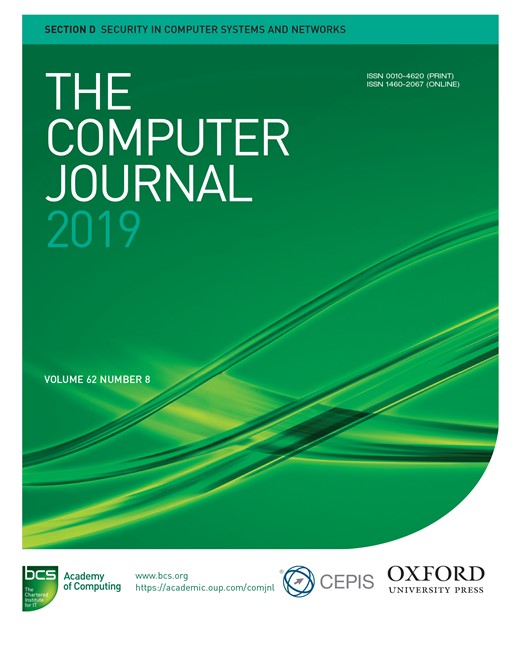-
Views
-
Cite
Cite
Jinguang Han, Maoxuan Bei, Liqun Chen, Yang Xiang, Jie Cao, Fuchun Guo, Weizhi Meng, Attribute-Based Information Flow Control, The Computer Journal, Volume 62, Issue 8, August 2019, Pages 1214–1231, https://doi.org/10.1093/comjnl/bxz018
Close - Share Icon Share
Abstract
Information flow control (IFC) regulates where information is permitted to travel within information systems. To enforce IFC, access control encryption (ACE) was proposed to support both the no read-up rule and the no write-down rule. There are some problems in existing schemes. First, the communication cost is linear with the number of receivers. Second, senders are not authenticated, namely an unauthorized sender can send a message to a receiver. To reduce communication cost and implement sender authentication, we propose an attribute-based IFC (ABIFC) scheme by introducing attribute-based systems into IFC. Our ABIFC scheme captures the following features: (i) flexible IFC policies are defined over a universal set of descriptive attributes; (ii) both the no read-up rule and the no write-down rule are supported; (iii) the communication cost is linear with the number of required attributes, instead of receivers; (iv) receivers can outsource heavy computation to a server without compromising data confidentiality; (v) authorized senders can control release their attributes when sending messages to receivers. To the best of our knowledge, it is the first IFC scheme where flexible policies are defined over descriptive attributes and outsourced computation is supported.




